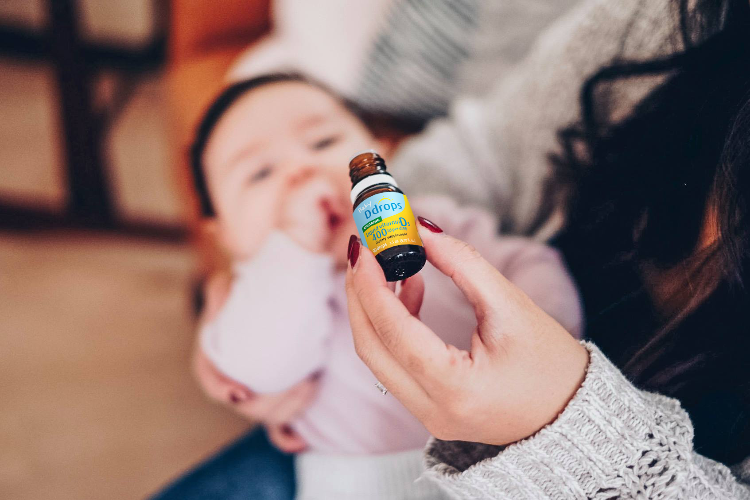Some people are more at risk of vitamin D deficiency than others. Oftentimes, there is no way to influence the factors that are putting these people at a greater risk.
The National Institute of Health (NIH) identifies the following groups at a greater risk of vitamin D deficiency:[1]
Breastfed infants
Human breast milk is considered a great source of nutrition for infants. However, it contains very minimal amounts of vitamin D. While the sun is a potential source of vitamin D, the AAP advises keeping infants out of direct sunlight and having them wear protective clothing and sunscreen. These two points are reasons for the long-standing recommendations for breastfed infants to receive a vitamin D supplement.
Adults over 50 years of age
As we age, the skin cannot synthesize vitamin D as efficiently. We are also likely to spend more time indoors. Additionally, research shows that older individuals have a greater risk of hip fractures and this is often associated with low blood levels of vitamin D.
Those with limited sun exposure
Work inside all day? Live in a northern climate? Wear concealing clothing? Use sunscreen? These are all factors that limit the ability to synthesize vitamin D from the sun.
Those who have dark skin
Darker skin pigmentation means that it takes longer (sometimes four times longer depending on the level of skin colour) for these individuals to produce vitamin D from sunlight.
Those who are obese or who have undergone gastric bypass surgery
A body mass index of 30 or higher is associated with lower levels of vitamin D compared with those with a lower BMI. Obesity does not affect the skin’s capacity to synthesize vitamin D, but greater amounts of fat require more of the vitamin and alter its release into the circulation. Those who are obese may need larger than usual intakes of vitamin D to achieve vitamin D levels comparable to those of normal weight. When gastric bypass surgery is performed, part of the upper small intestine where vitamin D is absorbed is removed. Previously mobilized vitamin D from fat stores may not compensate over time.
Keep in mind, although those who fall under one or more of these groups are at a higher risk of vitamin D deficiency, that does not guarantee vitamin D deficiency. Always talk to your doctor about your specific vitamin D needs.
Note: Ddrops are not meant to cure vitamin D deficiency, but rather to maintain normal vitamin D levels.
- [1] Dietary Supplement Fact Sheet: Vitamin D. National Institutes of Health, Dietary Supplements. August 2019 https://ods.od.nih.gov/factsheets/VitaminD-HealthProfessional/





Để lại một bình luận
Trang web này được bảo vệ bằng hCaptcha. Ngoài ra, cũng áp dụng Chính sách quyền riêng tư và Điều khoản dịch vụ của hCaptcha.